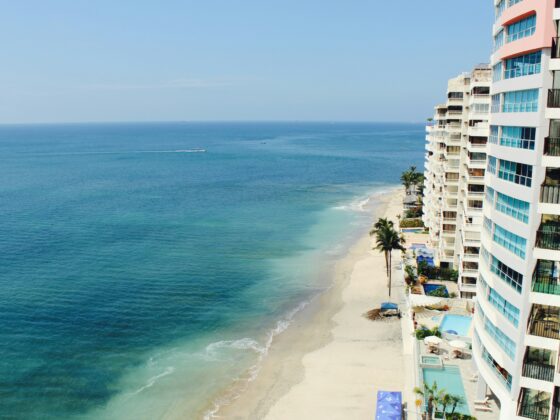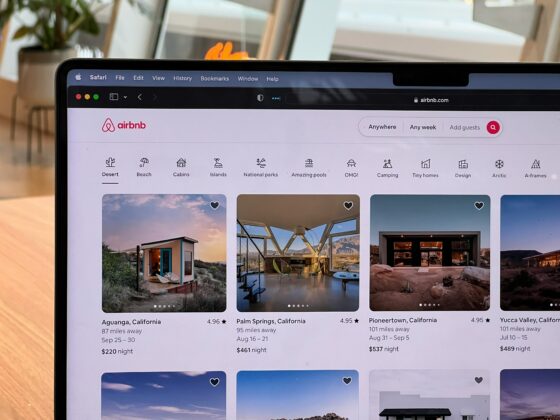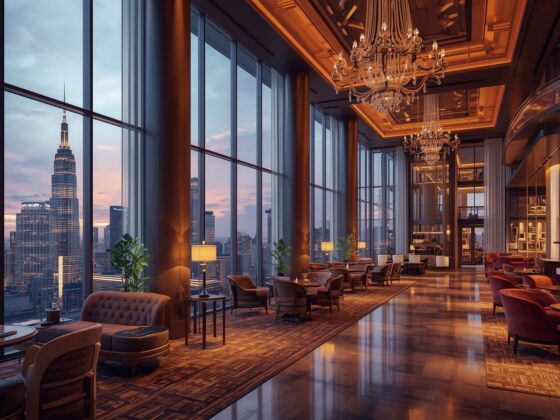
Undoubtedly one of the oldest commercial activities in the world, hospitality has constantly reinvented itself, sometimes simply by returning to its roots. During its expansion phase, it initially relied on new standardised concepts, seeking to respond in scale to the ever-increasing growth in travel accompanying the urbanisation of the Baby Boomers. Then it remembered the days when the inn was the centre of the village, the expression of local life and a meeting place for different generations and cultures.
At the dawn of the year 2000, a turning point into a new century, my father Georges Panayotis created the Hospitality Awards to reflect these developments and constant innovations through the nominations of small, medium and large hotel groups in all aspects of their daily operations.
If there is one thing to be proud of, it is that, year after year, we have captured, and sometimes anticipated, the best practices and transformations taking place within an industry that knows better than any other how to challenge itself.
Collective success can only be achieved through sharing and transparency, two motivations that are at the heart of our mission
Organised since their inception by Hospitality-ON and its predecessors (Hôtel Resto Hebdo and HTR Magazine), the Hospitality Awards are living proof of our unwavering commitment to businesses in the sector and to those who bring them to life and help them progress.
Collective success can only be achieved through sharing and transparency, two motivations that are at the heart of our mission. Competitive advantage is short-lived, even if it is significant. Good initiatives, exemplary innovations and bold investments give those who create them a head start. And for that, they deserve to be recognised. But it is even more satisfying that, through their example and their ripple effect, an entire industry is being mobilised by a virtuous force.
Twenty-five years is already a quarter of a century, but it is only one step in a long ancestral journey that we will continue to observe, assess and shed light on through our events and analyses.
Operational talent has shifted towards franchisees and managers
Remember, while large groups accelerated their quest for global scale by focusing on an asset-light model that gave power back to owners, their priority was marketing, communication and distribution. Operational talent shifted to franchisees and managers. The power and justification of the groups were expressed in loyalty, communication, the creation of new brands and even new concepts.
In the shadow of these large groups, new shoots appeared, seeking differentiation through innovation and entrepreneurship.
New words emerged, such as boutique hotels, lifestyle and houses, translated into concepts at Mama Shelter, 25hours, Hoxton, Moxy, Ennismore, Ruby and CitizenM. A new pendulum swing has occurred towards the search for strong identity, personalisation, and visual signature through design and architecture.
Hybridisation is leaving its niche to infiltrate all new projects
In a constant effort to adapt to the behaviour and new habits of hotel guests, recent years have seen hybridisation move beyond its niche to infiltrate all new projects. The Covid health crisis has further broken down the barriers between strict models, mixing accommodation, work and leisure in new co-living, co-working, workation, residence, hotel and third-place offerings.
At the same time, the gap has widened and continues to widen between two worlds that have very different visions of hospitality. For leisure customers with comfortable incomes, hotels are no longer defined solely by their walls, but by their ability to stage experiences: chef’s cuisine, art, music, sport, fashion and local immersion.
For these high-end customers, experiential, even transformational travel has become the new luxury. Well-being is no longer limited to relaxation. Today’s hospitality encompasses an entire ecosystem of integrative health and longevity: retreats, nutrition, fitness, preventive medicine. Well-being is becoming a core value proposition rather than an ancillary service.
For hoteliers, who have been slow to embrace it, digitalisation dominates operations
For a more traditional clientele, motivated more by practical considerations than emotional ones, the search for efficiency, simplicity and localisation remains an essential quest, facilitated by new tools, conversational assistants, 24/7 chatbots and real-time personalisation. Arbitrage is their motto, and value for money is an essential criterion.
From GDS to mobile, distribution and loyalty have been transformed. For hoteliers, who have been slow to embrace it, digitalisation dominates operations for better or for worse.
The emergence of channel management, dynamic revenue management and predictive CRM has made data central. Poorly controlled intermediation by OTAs has redefined margins and increased commercial dependence.
After two decades of productivity and automation, the sector is rediscovering that human capital is its primary differentiating asset
Today, there are many questions about the next step. Will it be liberating or more restrictive, depending on how generative artificial intelligence and its derivatives are used? Technological innovation is one of the priorities for supporting team productivity and freeing up valuable time.
After two decades of productivity and automation, the sector is rediscovering that human capital is its primary differentiating asset. The pandemic has exacerbated HR tensions, revealing the need for benevolent management, a strong corporate culture and flexible career paths.
The Hospitality Awards are a good indicator of the changing priorities of hotel groups, which are placing greater emphasis on continuous training, the promise of career progression and the search for meaning in their profession(s). It is becoming increasingly vital to retain talent at least as much as to recruit it.
Sustainability and social responsibility are no longer just empty rhetoric
These new talents, like the customers they serve, now consider sustainability and social responsibility to be more than just gimmicks or empty rhetoric. They are seen as an integral part of overall performance and the famous quest for meaning.
ESG policies coexist with, and even determine, investment strategies and are a key factor in financing, recruitment and differentiation.
But undoubtedly, the greatest transformation of the last 25 years has been cultural: hospitality is no longer limited to the hotel industry, but permeates and integrates complementary areas such as mobility, retail, catering, co-working, health and even digital technology.
In 25 years, hospitality has evolved from a service industry to an industry of experiences, data, assets and meaning. Through the lens of the Hospitality Awards, the winners are those who master emotion, consistency and sustainable value.









